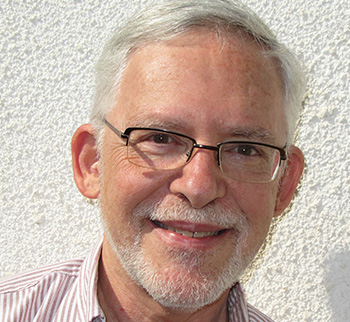TORONTO — Mark Lavie spent 40 years as a journalist in the Middle East, including two years living in Egypt, and he suggests consumers of the media should be cautious about accepting at face value what they read or hear.
There are big stories that go untold, as reporters pursue a narrative that more readily fits their worldview, and there are intimidation and threats that prevent full reporting from trouble spots like Gaza and the West Bank. What you get is not necessarily what’s really happening in these regions, he said.
Lavie, who has worked as a radio correspondent for CBC, Associated Press (AP) and NBC-Mutual Radio, is retired and living in Israel. But in his long career, he’s seen it all: how journalists are threatened not to report items that might embarrass Hamas, and how they ignore important stories.
Reporters covering the Middle East, for instance, often adopt a good guy/bad guy narrative. The Palestinians are seen as the underdog, and hence the good guys, and the Israelis are left with the role of bad guy. It takes a strong-willed reporter to put that view aside, he said.
In addition, Hamas makes it clear that journalists might not be safe if they cross certain lines. Journalists in Gaza have been kidnapped, and during last summer’s Operation Protective Edge, Hamas thugs visited AP and “tore up the office” after a rocket attack was launched from next door. “The message was very clear.”
Few western news agencies reported on rocket attacks from civilian areas, even though reporters knew what was happening. Almost everyone was on board with the Palestinian narrative that only civilians were casualties of Israeli attacks, he said.
Lavie said during the conflict, cameras outside al-Shifa Hospital in Gaza filmed civilians as they were brought in for treatment. But the had to stop recording when Hamas military personnel were brought in.
Illustrating how the media can skew a narrative in one direction, Lavie noted how AP ran a story 16 times about an Orthodox Israeli woman being seated in the back of a bus, but ignored the widespread “oppression” of women in Egypt.
He pointed to incidents of sexual harassment, “groping and worse,” suffered by female employees on their way to work at the AP office in Cairo. “In a two-block walk, my colleague faced four [incidents] of harassment,” said Lavie, author of Broken Spring, a look at the rise and fall of the Arab Spring.
Another untold story is the state of the economy in Egypt, which has left 40 per cent of the population living on less than $2 a day, well below the poverty line.
Asked about the upcoming Israeli election, scheduled for March 17, Lavie said it would likely be decided on domestic issues, such as the economy, inequality, the role of the ultra-Orthodox in society and the country’s faltering eduction system.
Israelis don’t put much stock in negotiations with the Palestinians, especially after two offers for statehood were turned down by the Palestinian leadership, he said.
Prime Minister Benjamin Netanyahu’s planned address to a joint session of the U.S. Congress won’t hurt his electoral chances, even if it has angered the Barack Obama administration, he said.
“It will help him. Most Israeli people agree with his policy. Most Israelis believe Obama is hostile to Israel, despite evidence to the contrary. They like to see the prime minister flex his muscle.”
As for the recent flare-up with Hezbollah, Lavie does not believe it will lead to a wider conflict. “It’s clear neither Hezbollah nor its Iran backers want this to spiral out of control,” he said. “But you never know, It takes one incident – a rocket attack on a school – and there you go. You’re playing with fire, and you never know how it’s going to end.”
Lavie’s Toronto visit was co-ordinated by the Centre for Israel and Jewish Affairs. It included a public lecture at Temple Sinai sponsored by CIJA, Temple Sinai and ARZA Canada.
His Toronto visit was part of a larger speaking tour that includes stops in Baltimore, Washington, Michigan State, Kalamazoo College, Fort Wayne and Pasadena.
